Managing stomach acid is tricky business. We need it to properly digest food, but too much acid wreaks havoc on the teeth and esophagus. Most patients find that antacid offers short-term relief from their symptoms. However, Waco, TX general dentist Dr. Corbet Locke cautions that popping antacids might actually do more harm than good in the long run, especially given the effect on your teeth and gums.
Some of the most widely consumed foods and beverages are highly acidic. It hardly seems fair that many of these foods are actually healthier than those you would eat at a fast food restaurant. Among the most acidic healthy foods are tomatoes, corn, grapefruit, and most grains. At the opposite end of the scale you have soda, coffee, fried foods, and processed goods.
The Hidden Dangers of Popping Antacids
If you take antacids frequently, you could also develop dry mouth. Saliva is your body’s best defense against periodontal disease and tooth decay. It flushes out bits of food and bacteria, interfering with plaque formation. Saliva also has natural antacid properties, which neutralizes acid formed by bacteria in your mouth. Most brands pack a shocking amount of sugar, which mixes with bacteria in your mouth to form plaque and tartar. If you take chewable antacids, your risk of developing cavities increases significantly. These chalky tablets mix with your saliva to create a paste-like consistency that clings to your teeth, beneath the gum lines, and in every imaginable crevice in your mouth.
Use Antacids Responsibly to Minimize Damage
Although infrequent antacid use doesn’t pose a threat to your oral health, you shouldn’t rely on them for long-term relief of your reflux symptoms. Over time, taking acids induces your body to produce more stomach acid. When this happens, you will notice that you get heartburn more frequently. In response, you take even more antacids, creating a vicious cycle. However, Dr. Locke advises, you can minimize the destruction of your teeth and gums due to antacid use:
- Immediately after taking a chewable or liquid antacid, rinse your mouth with water for at least 30 seconds.
- Limit your consumption of acidic foods and beverages. If you do, rinse your mouth immediately afterward. Wait half an hour to brush your teeth. Acid weakens tooth enamel, so brushing could do more harm than good.
- Use antacids only as a last resort. When purchasing antacids, opt for products that do not contain added sugar or dyes.
- Chew sugar-free gum to combat dry mouth caused by antacids. Chewing gum causes your mouth to produce more saliva, which will neutralize acid and wash away bits of food.
- Schedule regular dental appointments. Your dentist will clean your teeth and assess whether your enamel has sustained damage.
Has frequent antacid use taken its toll on your teeth? To schedule an appointment with Dr. Corbet Locke for a check-up and professional cleaning, contact our office at 254-776-4888. We provide advanced dentistry for patients living in McGregor, Woodway, Hewitt, Waco, and the surrounding cities. You can also find us on Facebook, where we share the latest news and insights.

